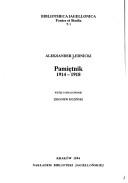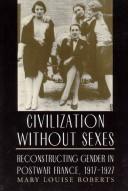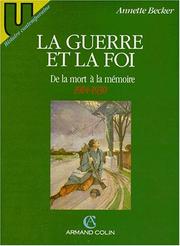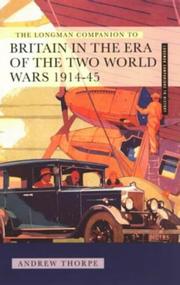| Listing 1 - 10 of 10 |
Sort by
|
Book
ISBN: 0691210128 Year: 1994 Publisher: Princeton, N.J. Baltimore, Md. Princeton University Press Project MUSE
Abstract | Keywords | Export | Availability | Bookmark
 Loading...
Loading...Choose an application
- Reference Manager
- EndNote
- RefWorks (Direct export to RefWorks)
In this work Beth Simmons presents a fresh view of why governments decided to abide by or defect from the gold standard during the 1920s and 1930s. Previous studies of the spread of the Great Depression have emphasized "tit-for-tat" currency and tariff manipulation and a subsequent cycle of destructive competition. Simmons, on the other hand, analyzes the influence of domestic politics on national responses to the international economy. In so doing, she powerfully confirms that different political regimes choose different economic adjustment strategies.
Gold standard --- International economic relations --- History --- Banque de France. --- Churchill, Winston. --- First World War. --- France. --- Great Britain. --- Keynes, John Maynard. --- Macmillan Committee. --- Moreau, Emile. --- Paris. --- Poincaré, Raymond. --- Robineau, Georges. --- Snowden, Philip. --- United States. --- World Economic Conference at London (1933). --- adjustment. --- balance of payments. --- balance: external. --- cabinet stability. --- capital flight. --- deflation. --- devaluation. --- exchange rates. --- gold standard. --- inflation. --- labor unrest. --- recession. --- strikes. --- tariffs. --- time inconsistency.

ISBN: 8386575131 Year: 1994 Volume: vol 1 Publisher: Krakow : Nakladem biblioteki jagiellonskiej,
Abstract | Keywords | Export | Availability | Bookmark
 Loading...
Loading...Choose an application
- Reference Manager
- EndNote
- RefWorks (Direct export to RefWorks)
World War, 1914-1918
---
-#BIBC:ruil

ISBN: 0415119324 0415119332 Year: 1994 Publisher: London : Routledge,
Abstract | Keywords | Export | Availability | Bookmark
 Loading...
Loading...Choose an application
- Reference Manager
- EndNote
- RefWorks (Direct export to RefWorks)
World War, 1914-1918 --- Première guerre mondiale --- Campaigns --- Maps --- Campagnes et batailles --- Cartes --- Historical geography --- -World War, 1914-1918 --- -European War, 1914-1918 --- First World War, 1914-1918 --- Great War, 1914-1918 --- World War 1, 1914-1918 --- World War I, 1914-1918 --- World War One, 1914-1918 --- WW I (World War, 1914-1918) --- WWI (World War, 1914-1918) --- History, Modern --- Geography, Historical --- Geography --- -Maps --- Maps. --- Première guerre mondiale --- European War, 1914-1918 --- Atlases, Historical --- Historical atlases --- Historical maps --- Campaigns&delete&
Book
ISBN: 9053640231 Year: 1994 Publisher: Aartrijke Decock
Abstract | Keywords | Export | Availability | Bookmark
 Loading...
Loading...Choose an application
- Reference Manager
- EndNote
- RefWorks (Direct export to RefWorks)
English language --- German language --- French language --- Dutch language --- Polemology --- History of Europe --- anno 1910-1919 --- Allemand (langue) --- Anglais (langue) --- Armée --- Dictionnaires --- Duits --- Engels --- Frans --- Français (langue) --- Geschiedenis van de nieuwste tijden --- Guerres --- Histoire contemporaine --- Leger --- Nederlands --- Néerlandais (langue) --- Oorlogen --- Woordenboeken --- Languages, Modern --- Soldiers --- World War, 1914-1918 --- Terms and phrases. --- Language. --- Dictionnaire --- Guerre 1914-1918 --- DIALECTOLOGIE -- 802.0 --- SOLDATENTAAL -- 802.0 --- SLANG -- 802.0 --- SOLDATENTAAL -- 800.864 --- -Soldiers --- -World War, 1914-1918 --- -#A9502A --- European War, 1914-1918 --- First World War, 1914-1918 --- Great War, 1914-1918 --- World War 1, 1914-1918 --- World War I, 1914-1918 --- World War One, 1914-1918 --- WW I (World War, 1914-1918) --- WWI (World War, 1914-1918) --- History, Modern --- Armed Forces personnel --- Members of the Armed Forces --- Military personnel --- Military service members --- Service members --- Servicemen, Military --- Armed Forces --- Foreign languages --- Languages, Foreign --- Languages, Living --- Living languages --- Modern languages --- Terms and phrases --- Language --- Soldatentaal --- Wereldoorlog I --- woordenboeken --- woordenboeken. --- #A9502A --- Language&delete& --- Polyglot --- Guerre mondiale (1914-1918) --- Langage.

ISBN: 071851713X Year: 1994 Publisher: London New York Leicester University Press
Abstract | Keywords | Export | Availability | Bookmark
 Loading...
Loading...Choose an application
- Reference Manager
- EndNote
- RefWorks (Direct export to RefWorks)
Museums --- World War, 1914-1918 --- Social change --- Musées --- Première guerre mondiale --- Changement social --- History --- Influence --- Exhibitions --- Histoire --- Expositions --- Musées --- Première guerre mondiale --- European War, 1914-1918 --- First World War, 1914-1918 --- Great War, 1914-1918 --- World War 1, 1914-1918 --- World War I, 1914-1918 --- World War One, 1914-1918 --- WW I (World War, 1914-1918) --- WWI (World War, 1914-1918) --- History, Modern --- Public institutions --- Cabinets of curiosities --- Imperial War Museum (Great Britain) --- London (England). --- London. --- Great Britain. --- National War Museum (Great Britain) --- Imperial War Museums (Great Britain) --- History. --- Great Britain --- 20th century --- Museums - Great Britain - History. --- World War, 1914-1918 - Influence. --- World War, 1914-1918 - Exhibitions - Great Britain. --- Social change - History - 20th century.

ISBN: 0226721221 0226721213 9780226721217 9780226721224 Year: 1994 Volume: *28 Publisher: Chicago, Ill. The University of Chicago Press
Abstract | Keywords | Export | Availability | Bookmark
 Loading...
Loading...Choose an application
- Reference Manager
- EndNote
- RefWorks (Direct export to RefWorks)
In sources as diverse as parliamentary records, newspaper articles, novels, medical texts, writings on sexology, and vocational literature, Roberts discovers a central question: how to come to terms with rapid economic, social, and cultural change and articulate a new order of social relationships. She examines the role of French trauma concerning the War in legislative efforts to ban propaganda for abortion and contraception, and explains anxieties about the decline of maternity by a crisis in gender relations that linked soldiery, virility, and paternity. In the raucous decade following World War I, newly blurred boundaries between male and female created fears among the French that theirs was becoming a civilization without sexes. This new gender confusion became a central metaphor for the War's impact on French culture and led to a marked increase in public debate concerning female identity and woman's proper role. Mary Louise Roberts examines how in these debates French society came to grips with the catastrophic horrors of the Great War. Through these debates, Roberts locates the seeds of actual change. She shows how the willingness to entertain, or simply the need to condemn, nontraditional gender roles created an indecisiveness over female identity that ultimately subverted even the most conservative efforts to return to traditional gender roles and irrevocably altered the social organization of gender in postwar France.
Sex role --- Women --- World War, 1914-1918 --- Rôle selon le sexe --- Femmes --- Première guerre mondiale --- History --- Social conditions. --- Social aspects --- Histoire --- Conditions sociales --- Aspect social --- vrouwengeschiedenis --- seksuele rolpatronen --- Frankrijk --- ro: foreword by --- CDL --- 305 --- History of France --- anno 1910-1919 --- anno 1920-1929 --- Rôle selon le sexe --- Première guerre mondiale --- Sex roles --- France --- Social conditions --- 20th century --- Sex role - France - History - 20th century. --- World War, 1914-1918 - Social aspects - France. --- World War, 1914-1918 - Women - France. --- European War, 1914-1918 --- First World War, 1914-1918 --- Great War, 1914-1918 --- World War 1, 1914-1918 --- World War I, 1914-1918 --- World War One, 1914-1918 --- WW I (World War, 1914-1918) --- WWI (World War, 1914-1918) --- History, Modern --- Gender role --- Sex (Psychology) --- Sex differences (Psychology) --- Social role --- Gender expression --- Sexism --- Gender roles --- Gendered role --- Gendered roles --- Role, Gender --- Role, Gendered --- Role, Sex --- Roles, Gender --- Roles, Gendered --- Roles, Sex --- Frankrijk.

ISBN: 2200214235 9782200214234 Year: 1994 Publisher: Paris : Armand Colin,
Abstract | Keywords | Export | Availability | Bookmark
 Loading...
Loading...Choose an application
- Reference Manager
- EndNote
- RefWorks (Direct export to RefWorks)
World War, 1914-1918 --- Sacrifice --- Faith --- Première guerre mondiale --- Foi --- Moral and ethical aspects --- Religious aspects --- Monuments --- Aspect moral --- Aspect religieux --- Sociologie religieuse --- --Guerre mondiale, 1re, --- Histoire des mentalités --- --World War, 1914-1918 --- -European War, 1914-1918 --- First World War, 1914-1918 --- Great War, 1914-1918 --- World War 1, 1914-1918 --- World War I, 1914-1918 --- World War One, 1914-1918 --- WW I (World War, 1914-1918) --- WWI (World War, 1914-1918) --- History, Modern --- Religious belief --- Theological belief --- Belief and doubt --- Religion --- Salvation --- Theological virtues --- Trust in God --- -Religious aspects --- Première guerre mondiale --- Guerre mondiale, 1re, 1914-1918 --- World War, 1914-1918 - Religious aspects --- FRANCE --- HISTOIRE RELIGIEUSE --- 20E SIECLE --- HISTOIRE MILITAIRE --- MONUMENTS --- HISTOIRE --- 1914-1940

ISBN: 0582077710 0582077729 Year: 1994 Publisher: London Longman
Abstract | Keywords | Export | Availability | Bookmark
 Loading...
Loading...Choose an application
- Reference Manager
- EndNote
- RefWorks (Direct export to RefWorks)
World War, 1914-1918 --- World War, 1939-1945 --- Première guerre mondiale --- 2ème guerre mondiale --- Great Britain --- Grande-Bretagne --- History --- Politics and government --- Economic conditions --- Social conditions --- Foreign relations --- Histoire --- Politique et gouvernement --- Conditions économiques --- Conditions sociales --- Relations exterieures --- Première guerre mondiale --- 2ème guerre mondiale --- Conditions économiques --- European War, 1939-1945 --- Second World War, 1939-1945 --- World War 2, 1939-1945 --- World War II, 1939-1945 --- World War Two, 1939-1945 --- WW II (World War, 1939-1945) --- WWII (World War, 1939-1945) --- History, Modern --- European War, 1914-1918 --- First World War, 1914-1918 --- Great War, 1914-1918 --- World War 1, 1914-1918 --- World War I, 1914-1918 --- World War One, 1914-1918 --- WW I (World War, 1914-1918) --- WWI (World War, 1914-1918) --- Handbooks, manuals, etc --- Handbooks, manuals, etc.

ISBN: 1282070185 9786612070181 0226721272 9780226721279 9780226721217 0226721213 0226721221 9780226721224 0226721213 9780226721217 9781282070189 6612070188 Year: 1994 Publisher: Chicago University of Chicago Press
Abstract | Keywords | Export | Availability | Bookmark
 Loading...
Loading...Choose an application
- Reference Manager
- EndNote
- RefWorks (Direct export to RefWorks)
In the raucous decade following World War I, newly blurred boundaries between male and female created fears among the French that theirs was becoming a civilization without sexes. This new gender confusion became a central metaphor for the War's impact on French culture and led to a marked increase in public debate concerning female identity and woman's proper role. Mary Louise Roberts examines how in these debates French society came to grips with the catastrophic horrors of the Great War. In sources as diverse as parliamentary records, newspaper articles, novels, medical texts, writings on sexology, and vocational literature, Roberts discovers a central question: how to come to terms with rapid economic, social, and cultural change and articulate a new order of social relationships. She examines the role of French trauma concerning the War in legislative efforts to ban propaganda for abortion and contraception, and explains anxieties about the decline of maternity by a crisis in gender relations that linked soldiery, virility, and paternity. Through these debates, Roberts locates the seeds of actual change. She shows how the willingness to entertain, or simply the need to condemn, nontraditional gender roles created an indecisiveness over female identity that ultimately subverted even the most conservative efforts to return to traditional gender roles and irrevocably altered the social organization of gender in postwar France.
Sex role --- Women --- World War, 1914-1918 --- European War, 1914-1918 --- First World War, 1914-1918 --- Great War, 1914-1918 --- World War 1, 1914-1918 --- World War I, 1914-1918 --- World War One, 1914-1918 --- WW I (World War, 1914-1918) --- WWI (World War, 1914-1918) --- History, Modern --- Gender role --- Sex (Psychology) --- Sex differences (Psychology) --- Social role --- Gender expression --- Sexism --- History --- Social conditions. --- Social aspects --- Sex role - France - History - 20th century. --- Women - France - Social conditions. --- World War, 1914-1918 - Social aspects - France. --- World War, 1914-1918 - Women - France. --- Gender roles --- Gendered role --- Gendered roles --- Role, Gender --- Role, Gendered --- Role, Sex --- Roles, Gender --- Roles, Gendered --- Roles, Sex --- Sex roles --- gender, postwar, wartime, history, historical, wwi, world war, france, french, europe, european, 1900s, 20th century, reconstruction, roles, academic, scholarly, research, culture, cultural, parliament, primary source, newspaper, articles, novels, medical, sexology, vocational, literature, literary, women, woman, maternity, family, social studies.
Book
Abstract | Keywords | Export | Availability | Bookmark
 Loading...
Loading...Choose an application
- Reference Manager
- EndNote
- RefWorks (Direct export to RefWorks)
Heads of state --- World War, 1914-1918 --- Chefs d'Etat --- Première guerre mondiale --- Biography. --- Campaigns --- Biographie --- Campagnes et batailles --- Clemenceau, Georges, --- France --- Politics and government --- Politique et gouvernement --- -World War, 1914-1918 --- -929 CLEMENCEAU, GEORGES --- European War, 1914-1918 --- First World War, 1914-1918 --- Great War, 1914-1918 --- World War 1, 1914-1918 --- World War I, 1914-1918 --- World War One, 1914-1918 --- WW I (World War, 1914-1918) --- WWI (World War, 1914-1918) --- History, Modern --- Heads of government --- Rulers --- State, Heads of --- Executive power --- Statesmen --- Biography --- Participation, French --- Clemenceau, Georges --- -Heads of state --- Première guerre mondiale --- Pʻŭrangsŭ --- Frankrig --- Francja --- Frant︠s︡ii︠a︡ --- Prantsusmaa --- Francia (Republic) --- Tsarfat --- Tsorfat --- Franḳraykh --- Frankreich --- Fa-kuo --- Faguo --- Франция --- French Republic --- République française --- Peurancih --- Frankryk --- Franse Republiek --- Francland --- Frencisc Cynewīse --- فرنسا --- Faransā --- Franza --- Republica Franzesa --- Gallia (Republic) --- Hyãsia --- Phransiya --- Fransa --- Fransa Respublikası --- Franse --- Францыя --- Frantsyi︠a︡ --- Французская Рэспубліка --- Frantsuzskai︠a︡ Rėspublika --- Parancis --- Pransya --- Franis --- Francuska --- Republika Francuska --- Bro-C'hall --- Френска република --- Frenska republika --- França --- República Francesa --- Pransiya --- Republikang Pranses --- Γαλλία --- Gallia --- Γαλλική Δημοκρατία --- Gallikē Dēmokratia --- فرانسه --- Farānsah --- צרפת --- רפובליקה הצרפתית --- Republiḳah ha-Tsarfatit --- פראנקרייך --- 法国 --- 法蘭西共和國 --- Falanxi Gongheguo --- フランス --- Furansu --- フランス共和国 --- Furansu Kyōwakoku --- Francija --- Ranska --- Frankrike --- 929 CLEMENCEAU, GEORGES --- Kliminṣū, Jūrj, --- Clemenceau, Georges Eugène Benjamin, --- Klemanso, Zhorzh,
| Listing 1 - 10 of 10 |
Sort by
|

 Search
Search Feedback
Feedback About UniCat
About UniCat  Help
Help News
News